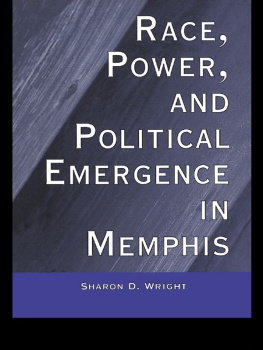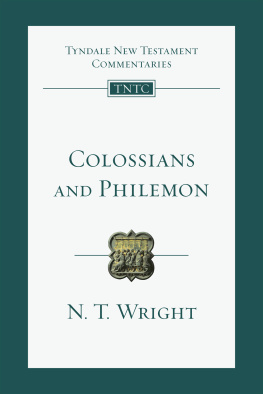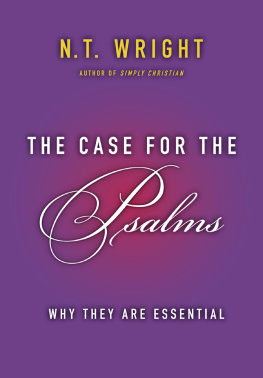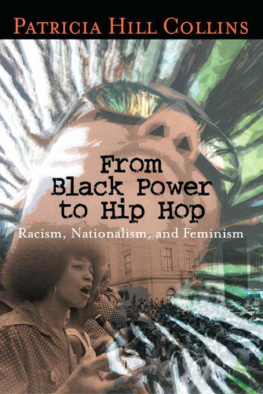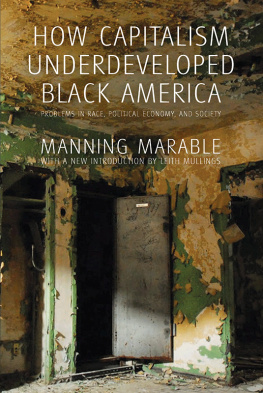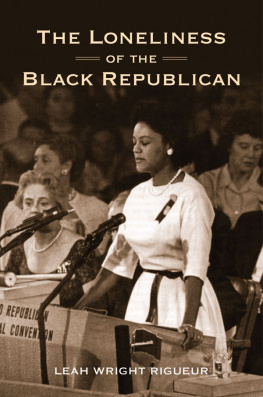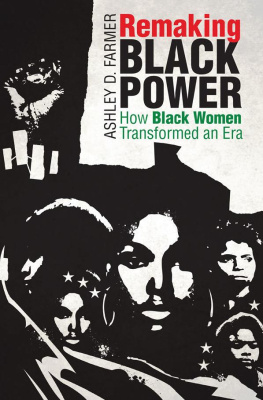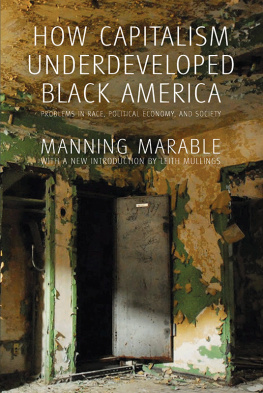GARLAND PUBLISHING, INC.
This edition published in the Taylor & Francis e-Library, 2003.
All rights reserved. No part of this book may be reprinted or reproduced or utilized in any form or by any electronic, mechanical, or other means, now known or hereafter invented, including photocopying and recording, or in any information storage or retrieval system, without permission in writing from the publishers.
Library of Congress Cataloging-in-Publication Data is available from the Library of Congress.
Preface and Acknowledgments
In their study of Southern politics, Jack Bass and Walter Devries found that the emergence of Southern blacks into the mainstream of political participation led to a transformation of Southern politics. One of the more interesting transformations in a major Southern city has occurred in Memphis, Tennessee which has been used as a case study to examine the effects of racial conflict on black political development. An examination of Memphis black political scene allows for an understanding of the larger issues of politics, power, and race in urban America.
The emergence of black Memphians as dominant actors in local electoral politics has differed from their emergence in other Southern cities. Voluntary desegregation occurred before passage of the Civil Rights Act of 1964 and blacks voted in large numbers long before passage of the Voting Rights Act of 1965. This is not to suggest that the city of Memphis has been a great Utopia for African Americans. On the contrary, white voters and politicians alike resisted black political emergence. In addition, the black community had to end the internecine divisions and rivalries among its leadership to elect its first black mayor. The election and subsequent reelection of W.W.Herenton not only represented the political emergence of black voters, but the beginning of a new, majority black governing coalition as well. The task that remains for black Memphis is to translate its political power into economic power. If not, they will inherit a city which consists mostly of poor and working class residents who have few options for economic sustainability and growth.
This project began during the summer of 1992 while I was a doctoral candidate in the department of political science at the University of Tennessee at Knoxville. I am greatly indebted to its faculty. Professors Paul Bergeron, John Scheb II, Otis Stephens, and William Lyons were particularly helpful in providing comments on my dissertation which analyze elements of racial polarization in Memphis mayoral elections from 19671991.
I am also very grateful to my former colleagues in the department of Pan-African Studies at the University of LouisvilleChandra Alves, Deidre L.Badejo, Susan Broadhead, Carol M.Cummings, Robert L. Douglas, David E.Goatley, J.Blaine Hudson, Yvonne V.Jones, and Angela White. My friends in the department of political science and the black studies program at the University of Missouri at Columbia have also given me a tremendous amount of support over the last two years. In addition, the Offices of Research at both universities provided grants to fund this research.
I would also like to thank my dear friends and mentors who read all or parts of this manuscriptProfessors Thad Brown, Miriam DeCosta-Willis, James Jennings, Dennis Judd, Michael Kirby, Minion K.C.Morrison, William E.Nelson Jr., Marion Orr, Marcus Pohlmann, and Wilbur C.Rich. Also, a number of local activists and elected officials granted interviews and provided useful information. Members of the National Conference of Black Political Scientists provided constructive criticism of papers from this text at annual meetings.
I would especially like to point out that the late Sara Roberta Church, the Reverend Dr. Benjamin L.Hooks, the Reverend Samuel B. Kyles, and Russell B.Sugarmon Jr. not only helped me with this research, but also paved the way for me and other young African Americans by challenging institutional racism in Memphis. I only hope that I can be a role model for the next generation as you have been for me. The staffs of the Hollis Price Library at LeMoyne-Owen College, the history section and Memphis Room at the Memphis Public Library and Information Center, Mississippi Valley Collection at the University of Memphis, Offices of Interlibrary Loan at the Universities of Louisville and Missouri at Columbia, Nate Hobbs and Claude Jones of the Memphis Commercial Appeal, and Era Switzler of the Shelby County Election Commission provided articles, data, texts, and other helpful information. My graduate research assistantsLaShonda Carter-Boone, Young Cho and Xin Guodid a lot of the most time-consuming work for this project. Two of my other graduate students, Richard T.Middleton IV and Kevin Anderson, have been a joy to work with over the years. Both of you have brilliant careers ahead of you in the field of African American politics. David Estrin, Laura Lawrie, Kristi Long, Toni C.Michelle-Travis, and anonymous reviewers at Garland provided helpful comments and constructive criticism. My best buddiesCarol Anderson, Russell Benjamin, Tony and Fatima Conard, Kitty Holland, Bobbie Holton, Joanne and Philip Joyner Jr., Charles Menifield, Helen Neville, Anna Riley, and Cassandra Veneyhelped me to maintain my sanity when writing this book and searching for a publisher. My family has given me the emotional support that I needed to continue with this projectmy mother Annie Ruth Wright, my babies Andrew, Austin, and Victoria Brown, my sister Janice Brown, my brother-in-law Donald Brown, and my brother and best friend Christopher Marvin Wright. Lastly, my special friend, Alfred Austin, motivates me to have a closer relationship with God and to be a better person.
Foreword
Professor James B.Jennings, Ph.D.
Director of the William Monroe Trotter Institute
The University of Massachusetts at Boston
Several demographic and economic developments in the United States point to a continuing preoccupation with issues related to race in this country. The state of race relations will be discussed and debated for a long time to come, based on the fact that racial and ethnic diversity is increasing in this nation, and also due to a situation where blacks in many places have yet to enjoy the fruits of economic opportunity available to other groups. Dr. Sharon Wrights study of black struggles for social and economic influence in a Southern city represents an important breakthrough for understanding historical antecedents to contemporary situation, as well as insight for possible future directions in urban politics.
The authors utilization of descriptive data and statistical analysis highlights relationships between institutions, culture, and political behavior. Her review of journalistic accounts of Memphis politics gives the reader insight into the racial thinking that is prevalent in some sectors of this city. Dr. Wrights command of urban affairs theory and literature provide a framework for placing events related to black politics in Memphis in a conceptual framework that is coherent and comprehensive.

